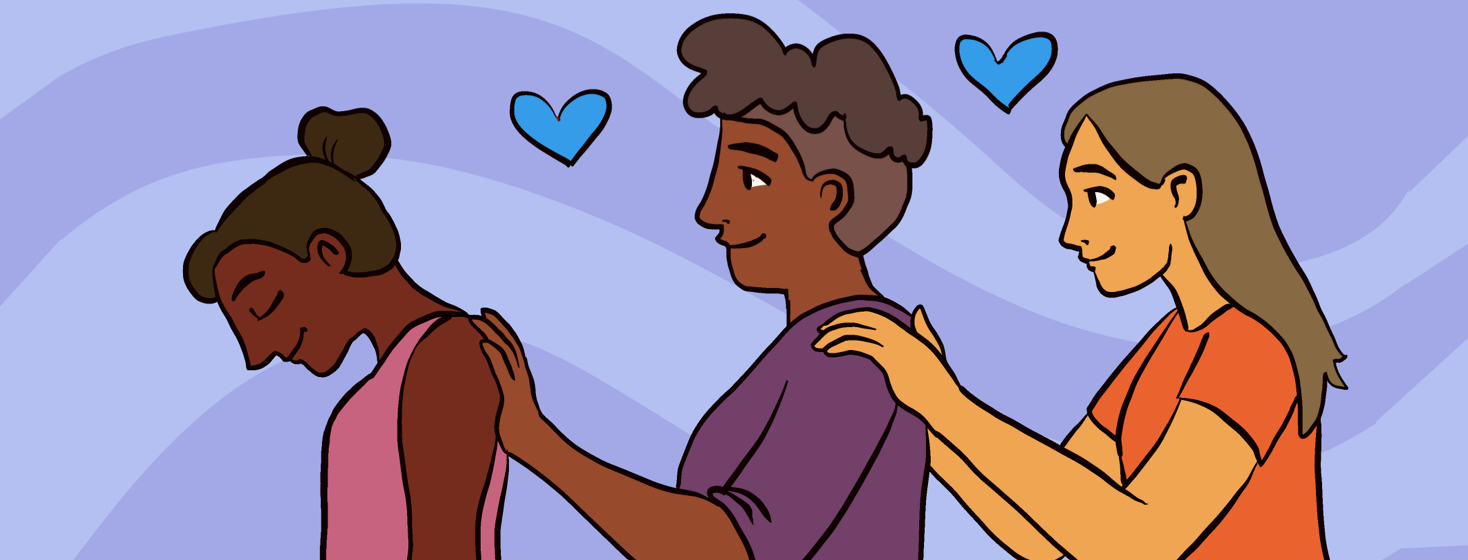Help Your Friends Help You, Part Three
In the first two parts of this series, I discussed how our friends want to be part of our lung cancer journey. They want to help us. The problem that many face is they do not know how.
How friends can help you through your lung cancer journey
In part one, I shared how important it is for them to talk with us, keep present in our lives, and do whatever they think we might want without asking. In part two, I discussed ways friends could be actively engaged in our treatment and progress and how they can keep us actively engaged in our community. Part three is the most important way friends can help; caring for the caregiver.
The lung cancer journey is also tough on the caregiver!
I believe my cancer is much harder on my wife than on me. Yes, I have incurable lung cancer. I can’t change it, I can't ignore it, and I can't walk away from it. Therefore, all I can do is accept it, go through my treatments, and know that in the end, cancer will likely win, and I will be gone.
My wife, on the other hand, sees how I am reacting to my lung cancer diagnosis and the treatments and is powerless to change it. She schedules my appointments and ensures I am comfortable, well-fed, and loved. She feels all the pressure of keeping me healthy and happy with very little reward for her efforts. I know it eats her up inside.
While she will not admit it, she also knows that when or if cancer finally wins and takes me away, she will be alone. The full-time energy and effort she currently puts into keeping me healthy and happy will be gone, the friends and family she has ignored to some degree while taking care of me will be challenging to reengage, and she will have to find a new purpose beyond caring for me.
Caring for the caregiver
The best way that friends and family can support me in my cancer journey is to make sure my wife (my caregiver) is well cared for. She needs their support just as much, if not more than I do. Cancer is all-consuming for her. Frankly, there may be a sense of guilt if she is out enjoying herself while I am in my chemo malaise.
Regular check-ins
Please check in with the caregiver frequently, not to ask how the patient is doing but to find out how the caregiver is doing. Find space for the caregiver to share their feelings, frustrations, jubilations, or whatever emotions they are experiencing. Listen with empathy and compassion rather than listening to find a solution. Knowing you care is medicine enough for the caregiver.
Ask open-ended questions that cannot be answered with a yes or no. Keep the caregivers sharing by following up on their responses with comments like “tell me more” or “that must be challenging.” You can then follow up with silence, allowing them the space and safety to keep sharing. As a mentor to CEOs, I always remind people to “let the silence do the heavy lifting” in a conversation.
Giving the caregiver a moment to themselves
Find a way to give the caregiver a break. When my friend Kathy was going through very challenging chemo, radiation, and painful cancer, her husband did not feel he could leave her for a moment. Three couples got together to schedule visits with them. One person would plan on sitting with and caring for Kathy while the other took the husband for a walk, a meal, or even a round of golf. A spa treatment or a movie break is perhaps all the caregiver needs. Good friends can provide that.
Trust in yourself
Finally, trust that you are good enough to help the caregiver in whatever way you believe would help. Think about what you would want and provide that to them in whatever way feels right. What you do does not have to be perfect, and there is no wrong way if you come from a place of love and caring. Your effort and intent are what matter most.
Others want to help
People in our lives want to get involved and make a difference. They are stopped by doubt and fear of doing the wrong thing. It’s our job as lung cancer patients and caregivers to open the door to them, guide them, and help them help us.
Please share this series of articles with your other communities. Even if you don’t need more support, you will give them the guidance and courage to assist others down the road, and what a great gift to give others living with lung cancer and other cancers.

Join the conversation